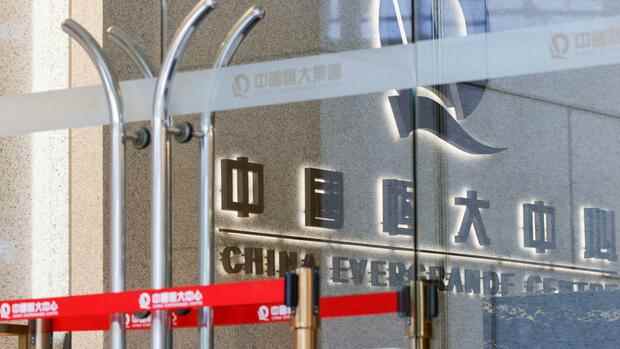Dusseldorf It is a heavy blow for the heavily indebted real estate group Evergrande: The developer has to demolish 39 luxury vacation properties on the popular holiday island of Hainan within ten days because permits are missing.
That is what the local authorities ordered. Evergrande has therefore temporarily suspended trading in its shares in Hong Kong, with reference to upcoming inside information. How long the trading freeze will last is unclear. Last October, the shares had been suspended from trading for almost two weeks.
The second largest real estate company in China has accumulated debts of the equivalent of around 300 billion dollars. There is also speculation about high off-balance sheet liabilities. Concerns about the bankruptcy of the heavily indebted conglomerate worried the financial markets last year. Because the Chinese real estate market contributes around a third of the Chinese economic output.
Evergrande missed several coupon dates in 2021, most recently a $ 255 million payment on two offshore bonds last Tuesday. At the beginning of December, an Evergrande subsidiary owed interest to offshore creditors even after a 30-day grace period had expired. The rating agencies Fitch and S&P rated this as a partial default. Interest payments of $ 68.6 million on a domestic bond will be due Friday and Sunday.
Top jobs of the day
Find the best jobs now and
be notified by email.
The demolition of parts of a tourism project in Hainan, which has now been ordered, exacerbates the Group’s liquidity crisis. As the Chinese business magazine “Caixin” reports, objects in 20 of the 39 apartment buildings have already been sold and may now have to be repaid.
Haihua Island is Evergrande’s largest tourism project with an area of almost 435,000 square meters. The notice of the fine states that the illegally obtained building permits for related projects have been revoked and that 39 buildings are illegal, according to “Caixin”. According to the magazine, Evergrande had already violated environmental regulations several times during the project.
The share prices of other Chinese real estate developers came under pressure on Monday after the news broke. The corresponding index fell by almost three percent over the course of trading. Papers from property developers Sunac China Holdings and the Shimao Group, which lost more than eight percent, were particularly hard hit. Because the biggest concern is that the Evergrande crisis could spill over to other companies in the real estate sector.
Chinese are losing faith in real estate as an asset class
The greatest risk in connection with the Evergrande crisis is that China’s private households will lose their faith in real estate as a value-preserving asset class. Buyer prepayments are the main source of funding, especially for low-capital developers with limited access to bank credit. A lack of private investments threatens a domino effect on the real estate market.
Many Chinese have invested in home ownership due to a lack of alternative investment opportunities. It is estimated that around three quarters of households’ wealth is in real estate. Your investments are the basis for the construction boom of the past two decades and an important driver of economic growth.
However, a recent poll by the People’s Bank of China, China’s central bank, shows that “a majority of Chinese think real estate prices will remain stable or fall in the first quarter,” reports the state-run Xinhua news agency.
This exacerbates the concerns of many experts about a crisis in the important real estate sector: For years, the main reason for “buying completely overpriced apartments in China’s cities is the expectation that prices can only go up”, writes Michael Pettis, finance professor at the renowned Peking University. As soon as that belief wanes, so does the most important reason to invest in real estate.
What’s more, there is an increasing incentive to sell, especially in cases in which the owner does not live in the apartment and may even have incurred debts for the purchase.
It is this negative spiral that worries the planners in Beijing, but also the financial markets.
Government counteracts this
The reason for the problems in China’s real estate market is the increasing regulation of the industry by the Chinese government. In the past few months, it had taken some measures to cool the country’s hot real estate market. The government made it clear again and again that the companies themselves must be responsible for their payment obligations. In the meantime, however, regulators have eased some lending measures for property buyers to prevent a slump.
According to Bloomberg calculations and analyst estimates, the industry will need at least $ 197 billion in January to pay maturing bonds, interest coupons and deferred wages for millions of migrant workers. According to analysts at Citigroup, the sales of 31 listed property developers in December fell by 26 percent compared to the same period last year.
More: China and the Evergrande shock: “The time to make money with real estate is over”
